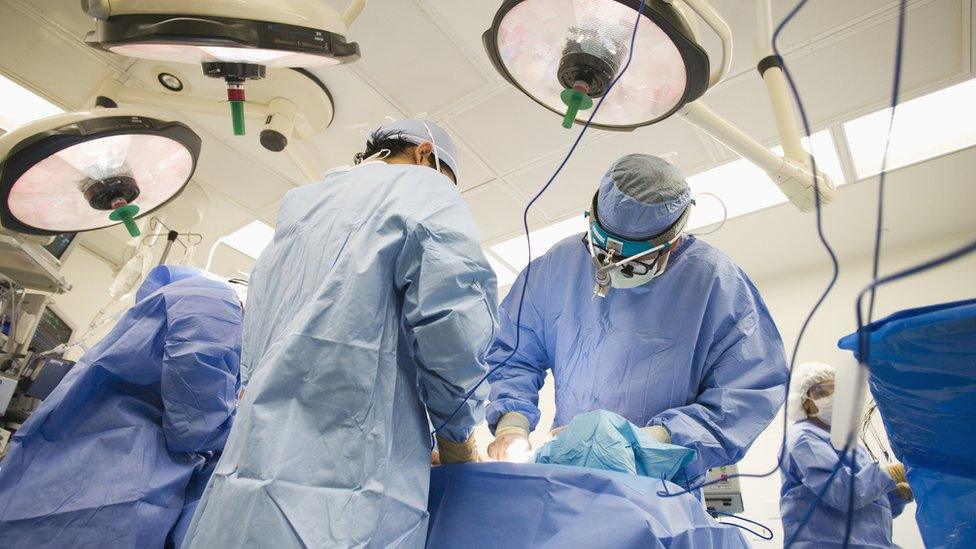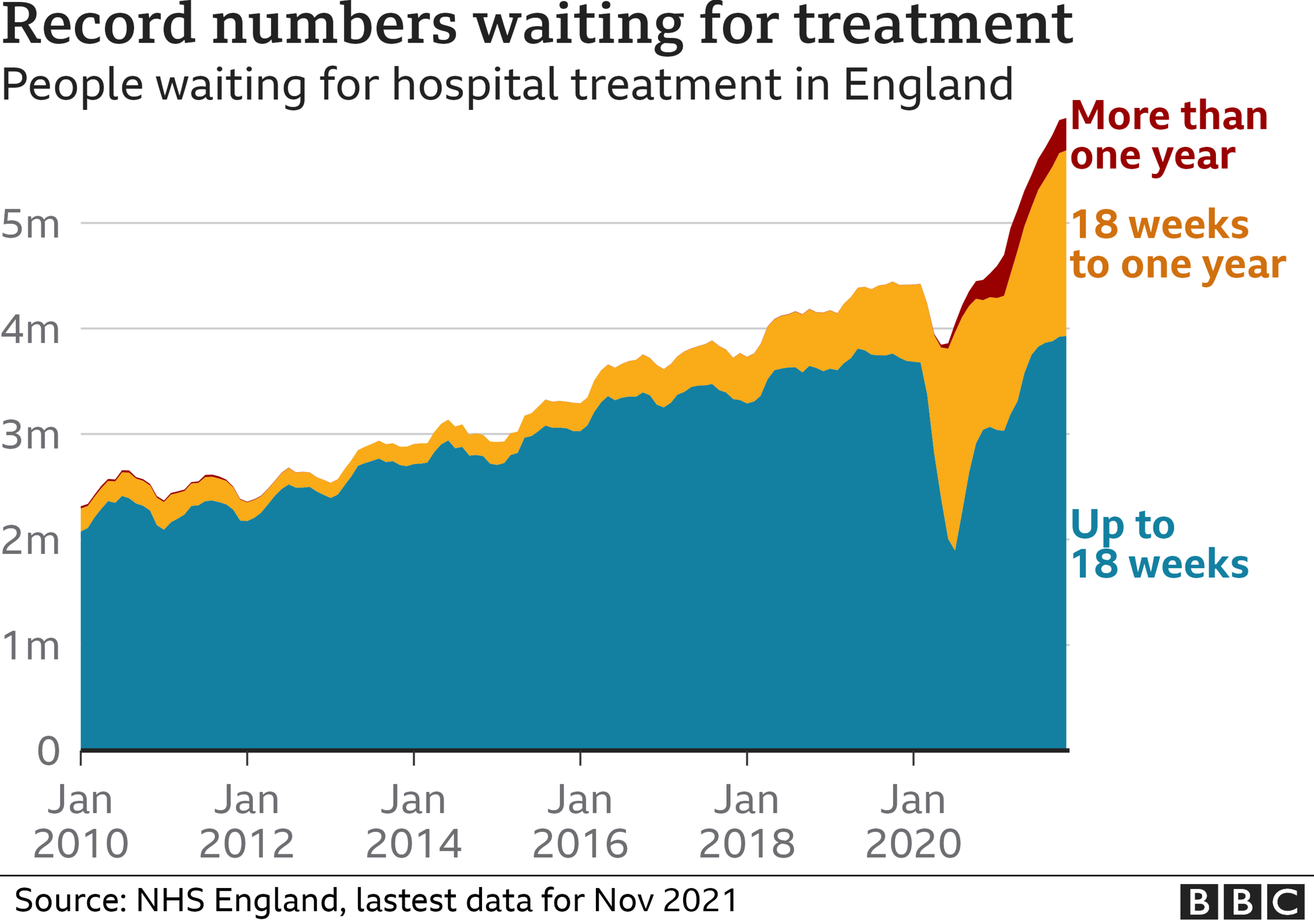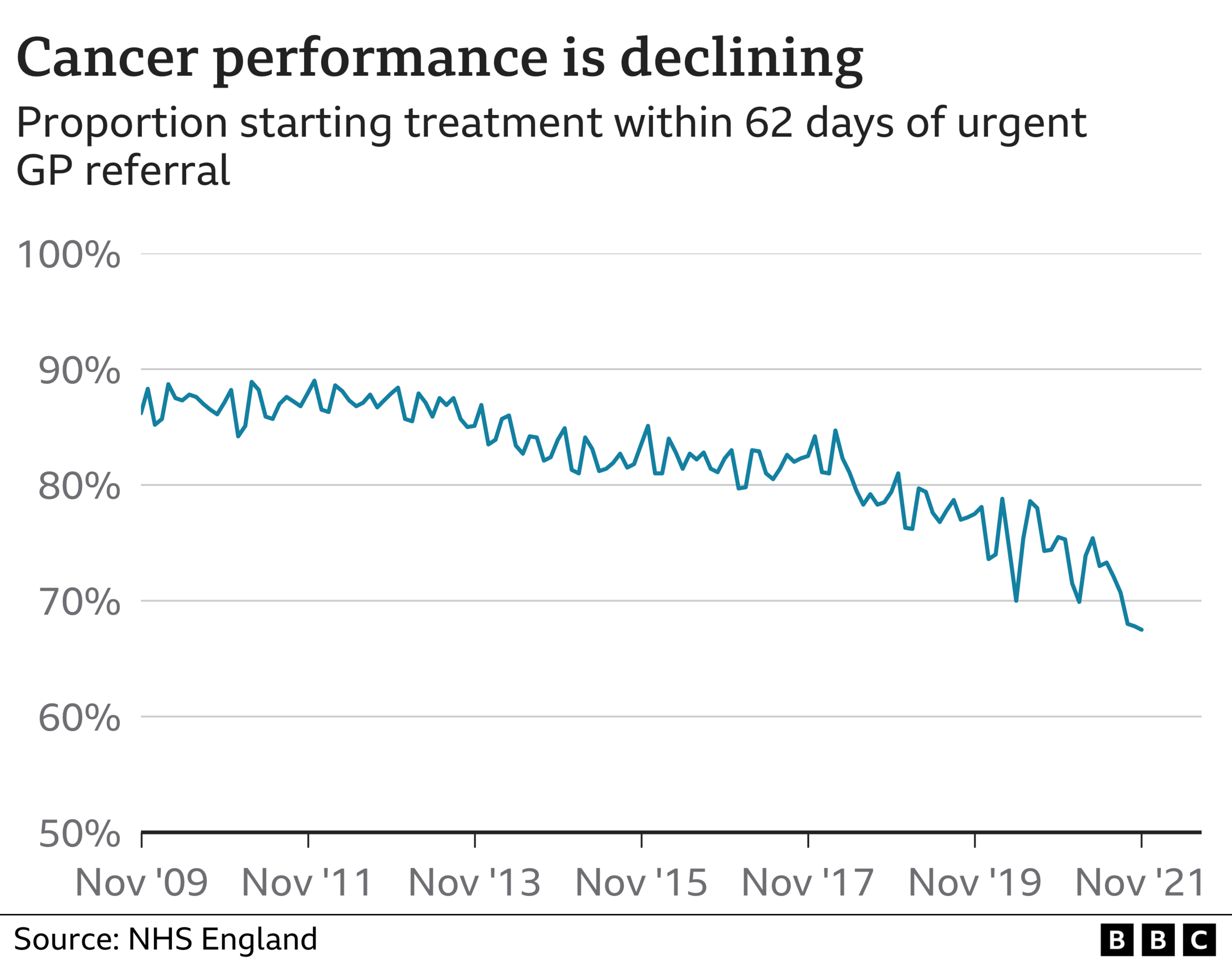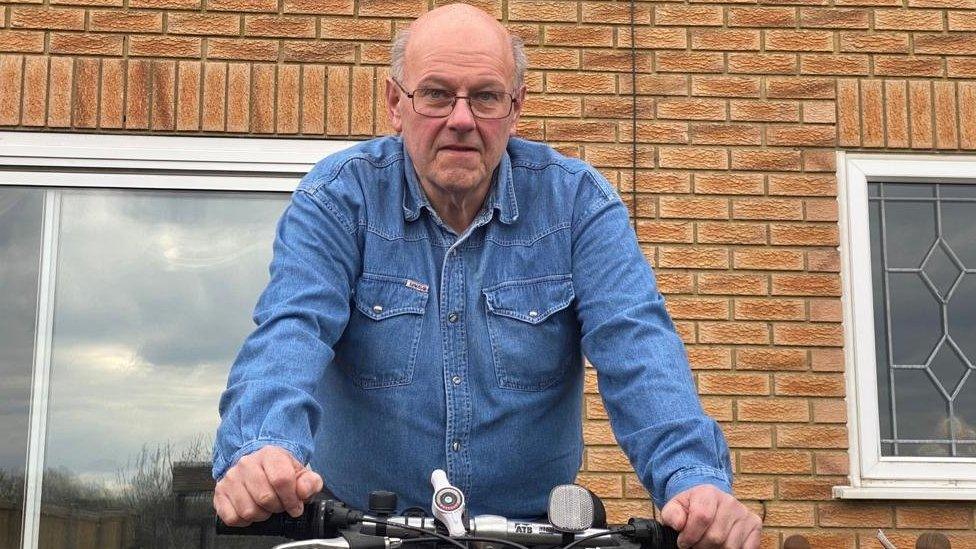NHS waiting-list backlog will take years to clear
- Published
- comments

The waiting list for hospital treatment will not start falling for two years, ministers say, despite unveiling a plan, external to tackle England's backlog in care.
Six million people are on a waiting list - one in nine of the population.
But Health Secretary Sajid Javid said this number would probably increase, with demand expected to rise now Covid pressure was easing.
He also set out plans to reduce waiting times for cancer treatment.
These include a 28-day target for cancer diagnosis by March 2024, which should have been introduced last year but was delayed by the pandemic.
The proportion of cancer patients starting treatment within 62 days would return to its pre-pandemic level by March 2023, Mr Javid said, although this would still leave it some way short of the 85% target.




Waiting times would be cut by a 30% rise in the NHS's capacity for treatment, he said.
Crucial to this will be the establishment of a network of 160 community diagnostic centres along with surgical hubs focused on high-volume routine surgery away from major hospital sites - to increase efficiency and reduce the chance of emergency cases leading to cancellations.
Extra investment of £8bn over the next three years, funded through a national-insurance rise, will pay for these new facilities.
To free up staff time, follow-up appointments would be arranged on a case-by-case basis, rather than for all patients automatically, Mr Javid said.
And a new online service, My Planned Care, will inform patients about waiting times and how to prepare for treatment.
The plan would not just "reset" the NHS to where it had been before Covid, Mr Javid said, but build on what had been learned and make it "fit for the future".
"Just as we came together to tackle the virus, now we must come together in a new national mission to fight what the virus has brought with it," he said.
If you can't see the look-up, click here.
The numbers being referred for treatment had dropped by about 10 million during the pandemic, Mr Javid said.
People are thought to have been deterred from seeking help for non-urgent care, everything from knee and hip surgery to treatment for sight problems and joint pain.
And the health secretary said the NHS was working on the basis half of these "missing patients" could now come forward.
He also promised to eliminate waits of over a year by 2025.
Currently more than 300,000 people have waited this long, up from 1,600 before Covid hit.
There was no promise to meet the target of seeing 92% of patients within 18 weeks, however, last achieved in 2016.
'Biggest challenge'
NHS England chief executive Amanda Pritchard said tackling the backlog would take time and "cannot happen overnight" but promised the health service would apply the same "can-do" spirit it had throughout the pandemic.
Shadow health secretary Wes Streeting accused the Tories of "mismanagement" of the NHS, pointing out performance had been declining before the pandemic.
And he said there was nothing in the health secretary's plan about tackling the "single biggest challenge" facing the NHS - the lack of staff.
"There are 93,000 staffing vacancies in the NHS today," Mr Streeting said.
"It is understaffed, overworked - and if he's not careful, he will lose more people than he is able to recruit."

Are you affected by issues covered in this story? Share your experiences by emailing haveyoursay@bbc.co.uk, external.
Please include a contact number if you are willing to speak to a BBC journalist. You can also get in touch in the following ways:
WhatsApp: +44 7756 165803
Tweet: @BBC_HaveYourSay, external
Please read our terms & conditions and privacy policy
If you are reading this page but cannot see the form, you will need to visit the mobile version of the BBC News website to submit your question or comment or email HaveYourSay@bbc.co.uk, external. Please include your name, age and location with any submission.

FROM MORECAMBE AND WISE TO KILLING EVE: Celebrating 100 years of the BBC in two minutes!
'MAKING PEOPLE'S LIVES BETTER' Ex-soldier Darren helps fellow veterans adjust to civilian life

Related topics
- Published7 February 2022

- Published13 January 2022

- Published8 January 2022
- Published6 January 2022

- Published28 May 2021

- Published14 March 2024

- Published15 April 2021

